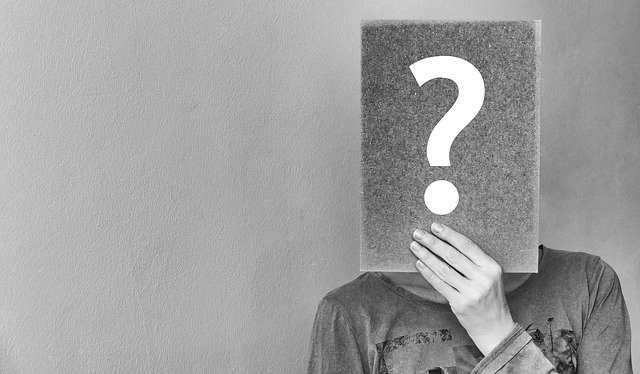 Submitted by Dr. Metz on
Submitted by Dr. Metz on

Image by Anemone123 from http://Pixabay.com
Logophobia. The Greek roots of the term are obvious: “logos” means “thought,” particularly rational thought, and “phobos” means “fear of.” Logophobia is defined by Shackel as, “a skeptical doctrine about rationality … [where] rationality cannot be an objective constraint on us but is just whatever we make it, and what we make it depends on what we value.” He adds, “[opponents] are held to disguise their self‐interested construction of rationality behind a metaphysically inflated view of rationality in which Reason with a capital R is supposed to transcend the merely empirical selves of rational beings.” In other words, logophobics claim that since reason cannot possibly solve every problem, so you can proceed with dismissing reason altogether.
Shackel’s paper is actually a serious, and at times rather technical, critique of the modus operandi of postmodernist (and deconstructionist, and anti‐rationalist feminist) authors such as Michel Foucault, Jacques Derrida, Jean‐Francois Lyotard, David Bloor, Richard Rorty and Stanley Fish, to mention just a few of the major offenders (though I personally make distinctions of degree among the named people). At one point I added to the list a number of pseudoscientists, such as the Intelligent Design proponents Bill Dembski and Michael Behe, alternative medicine “gurus” such as Deepak Chopra, or vaccination‐deniers such as Jenny McCarthy. And now, to my deep regret, it is becoming painfully obvious that both the extreme right (which, at the moment, appears to include most of the Republican party in the US), and certain increasingly vocal groups of the left, have been struck by the disease as well.
According to Shackel, logophobics have developed an arsenal of strategies to obfuscate clear thinking, which they deploy whenever pressed by a skeptic. For instance, consider Foucault’s classic thesis that there is no such thing as scientific truth, because truth is a reflection of local socioeconomic and political power: “The essential political problem for the intellectual is not to criticise the ideological contents supposedly linked to science, or to ensure that his own scientific practice is accompanied by a correct ideology, but that of ascertaining the possibility of constituting a new politics of truth.” This is apparently strong stuff, but it becomes a much milder statement when Foucault later tells us what he means by “truth”: “‘Truth’ is to be understood as a system of ordered procedures for the production, regulation, distribution, circulation and operation of statements.” Really? And here I was thinking that truth means as accurate a description of a subject‐independent reality as possible. Silly me.
Shackel calls this “troll truism,” which he defines as, “a mildly ambiguous statement by which an exciting falsehood may trade on a trivial truth.” It is a particular form of so‐called Humpty‐Dumptying, named after the character in Lewis Carroll’s Through the Looking Glass. Humpty Dumpty famously tells Alice, after she points out that he is arbitrarily switching word meanings in the course of their discussion: “When I use a word, it means just what I choose it to mean — neither more nor less.”
Now, to be fair, Foucault did have a point: science is a social activity, and scientists are human beings, prone to the same cognitive and cultural biases as everyone else. Also, some science has been in the thralls of either economic or political agendas, or both. Similarly, when Amia Srinivasan, in the article linked above, claims that even our sexual preferences have a political dimension, the thought is neither absurd nor easy to dismiss. But the political, or the economic, are not the beginning and end of everything we do or think. There are (Zeus forbid!) biological instincts and constraints on our behavior, there are matters of taste, and there are simple reasonable disagreements. To reduce everything to the political is to commit the Marxist mistake, only in the latter case everything reduces to economic struggle. No, the human experience is just too varied and complex to be explained away by mono-factorial accounts, no matter how good the intentions of those that push for such accounts.
Logophobia, I maintain, is a broad condition that can strike adult humans of all ages, genders and cultural backgrounds, especially when they have never been exposed to the basics of critical reasoning, or when they have grown up in the thralls of a powerful ideological system. And no, being a scientist, or a philosopher, does not make you immune, unfortunately. The effect of the disease can probably never be eliminated, as we all suffer from it, to an extent. But they can be reduced by means of sound education, although that requires painful effort on the part of educators and subjects alike. Once the subject is past middle school, it becomes increasingly difficult, though not quite impossible, to overcome the malady. But it’s important to try, as huge amounts of financial resources and time are wasted as a result. Occasionally, lives are lost as a direct outcome of logophobia, especially when the logophobic is a politician with the power to start a war, or a celebrity pushing an anti‐medical health practice. And important political agendas may unwittingly be delayed or even undermined when logophobic activists manage to shut down discourse they find threatening, insulting, or “fascistic.”
Needless to say, fighting the spread of logophobia is a primary responsibility of every reasonable thinking person, practicing scientist, and professional philosopher, despite the highly unfavourable odds against defeating it — which is why a thorough knowledge of the disease and of its symptoms is so crucial. Spread the word, and watch out for logophobics near you! (And beware of not becoming one yourself…)